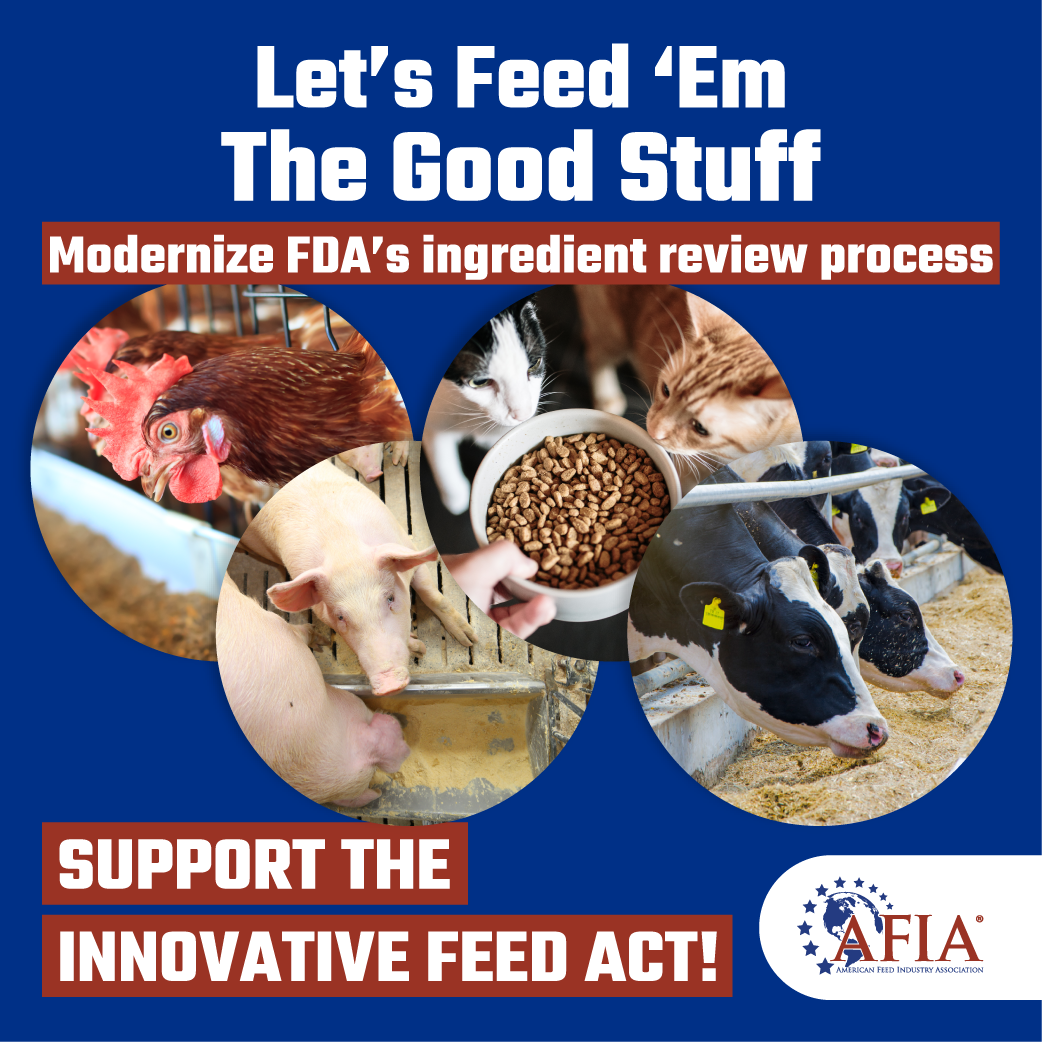Tell Congress to Pass the Innovative FEED Act!
“The promise of this for our future as a human race is really substantial.”
—FDA Commissioner Dr. Robert Califf before the House Appropriations Committee on April 18
 Each year, the U.S. reports roughly 1.35 million cases of salmonellosis from people eating contaminated food. One sick loved one is too many. What if we said there are feed ingredients specifically designed for food animals that would reduce the animal’s ability to harbor salmonella, which could wind up in our meat, chicken, egg or milk supply? Safer food? Yes, please!
Each year, the U.S. reports roughly 1.35 million cases of salmonellosis from people eating contaminated food. One sick loved one is too many. What if we said there are feed ingredients specifically designed for food animals that would reduce the animal’s ability to harbor salmonella, which could wind up in our meat, chicken, egg or milk supply? Safer food? Yes, please!
Methane emissions account for roughly 11% of U.S. greenhouse gas emissions, with the digestion process of livestock a contributor. What if we said there are feed ingredients specifically developed to help farmers reduce their livestock’s enteric emissions? Healthier environments lead to healthier people and animals. Reduced agricultural emissions? Yes, please!
Just like for humans, we know that good nutrition and exercise will promote better overall pet health. What if we said pet food manufacturers are developing precise nutrition solutions to promote longer, healthier lives for your pets? Healthier pets? Yes, please!
Click the links below for more information
The problem lies with the Food and Drug Administration’s 26-year-old animal food ingredient review policy, which reviews ingredients with non-nutritive benefits claims (e.g., production, animal well-being, food safety, emissions-reducing) listed on their labels as drugs, not feed ingredients. This subjects these novel ingredients to a lengthy and costly review process that has forced many U.S. animal food innovators to look abroad first instead of bringing these technologies to farmers, ranchers and pet owners here at home.
Since 2019, the American Feed Industry Association has been working tirelessly to modernize the FDA’s review process, so that these ingredients are more appropriately reviewed through the current ingredient review process.
The FDA needs Congress to clarify its legal authority so it can modernize its regulatory review process. After years of hearing from stakeholders, the FDA acknowledged that these animal food solutions are a critical component in meeting the goals outlined in its Animal and Veterinary Innovation Agenda. In the meantime, barring legal authority, the FDA signaled its intent to rescind the 1998 regulatory policy, calling for animal food innovators to work directly with the agency to decide the appropriate pathway for completing safety reviews of their new ingredients.
Luckily, there is a bipartisan bill in Congress – the Innovative Feed Enhancement and Economic Development Act (Innovative FEED) Act (S. 1842/H.R. 6687) – that would modernize the FDA’s outdated policy by amending the Federal Food, Drug and Cosmetic Act to establish a new category of animal food additives, which do not impact animal nutrition, but rather, act in the animal’s gut to provide health or production benefits, reduce emissions or address human food safety concerns. All animal food ingredients would still be subject to the rigorous Food Additive Petition process before gaining market approval, ensuring safety to the animals that consume them and the people who eat the resulting foods.
The Innovative FEED Act is supported by nearly 200 animal health and climate-related organizations, a growing number of bipartisan members of Congress and several administration officials. Read AFIA’s issue brief>>
Stand up for better animal food ingredients that will help the U.S. reach its food safety, environmental and pet wellness goals. Reach out to your senators and representatives below!
Click Here to Tell Your Members of
Congress to Support the Innovative FEED Act NOW!